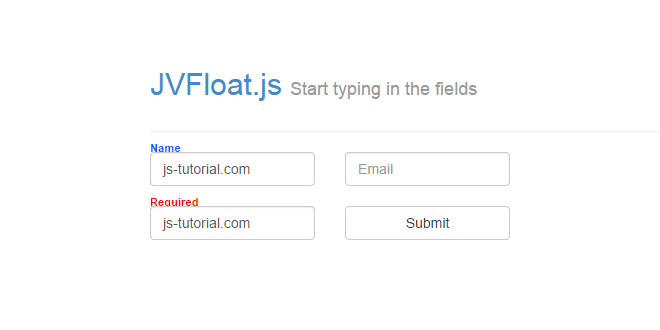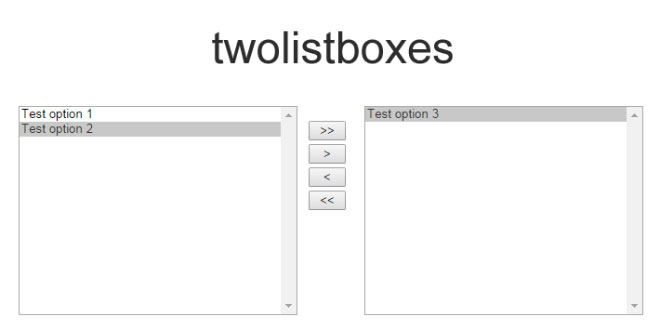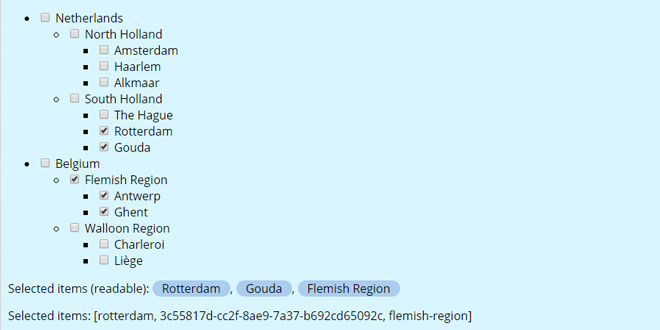Download
User Rating: 0/5 ( 0 votes)
JVFloat.js is a simple yet user-friendly jQuery plugin for creating a Floating Label Text effect using HTML5 and CSS3, which is inspired by Matt D. Smith's Mobile Form Interaction.
Source: blog.mahardi.me
1. INCLUDE CSS AND JS FILES
<link rel="stylesheet" href="css/jvfloat.css">
<script src="http://ajax.googleapis.com/ajax/libs/jquery/1.7.0/jquery.min.js"></script>
<script src="js/jvfloat.min.js"></script>
2. HTML
<input type="text" placeholder="test" class="testBox">
<input type="email" placeholder="email" class="testBox">
<input type="text" placeholder="Username">
<input type="text" placeholder="Required" required>
<input type="text" placeholder="Has ID" id="testid">
<textarea placeholder="Textarea!"></textarea>
<textarea placeholder="Textarea with id!" id="textarea"></textarea>
3. JAVASCRIPT
$('input, textarea').jvFloat();
4. CSS DOCUMENT
.jvFloat
this section performs styling on the div.jvFloat wrapper around the input generated by the script.
Rules that you mustn't remove: position: relative;
.jvFloat .placeHolder
this section performs styling on the span.placeHolder element inside div.jvFloat, where the copy ofinput placeholder text was stored. it's hidden by default.
Rules that you mustn't remove: position: absolute;, display: none;, visibility: hidden;,opacity: 0;
.jvFloat .placeHolder.required
the styling of the required placeholder. The default color is simply red.
.jvFloat .placeHolder.active
the active state of the aftermentioned section. its job are to display the hidden span.placeHolder when users is typing on the input.
Rules that you mustn't remove: display: block;, visibility: visible;, opacity: 1
5. ANOTHER NOTES ON CSS
JVFloat uses CSS3 Transform and Transitions to perform the animations by default. Browsers that doesn't support those will simply doesn't show anything when user typing on the input elements. to fix that, enable/uncomment the legacy rules on the default CSS file, and comment out the CSS3 rules.
 JS Tutorial
JS Tutorial




